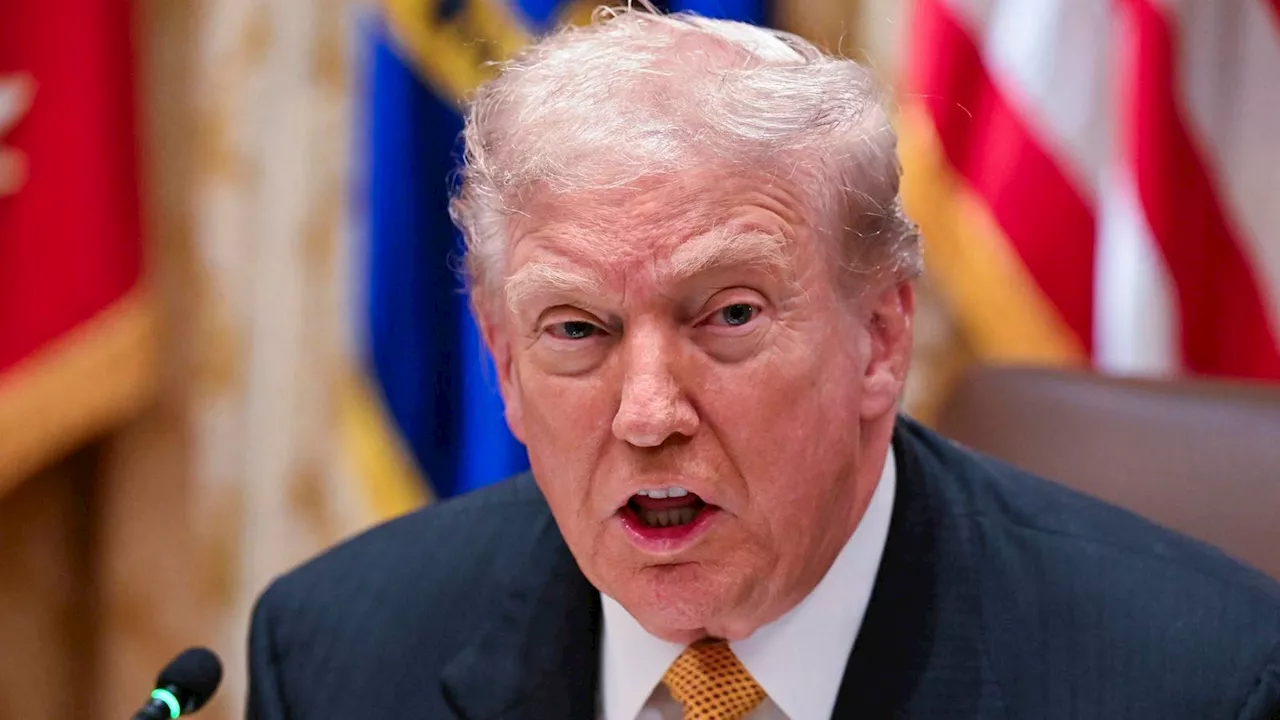Politics
Trump Shares Satirical Claim About Obama’s Alleged Obamacare Royalties

On Sunday, President Donald Trump posted a claim on social media alleging that former President Barack Obama has been collecting “royalties linked to Obamacare.” This assertion, which inaccurately states that Obama has received $40 million in taxpayer-funded royalties since the passage of the Affordable Care Act in 2010, originated from a satirical news site named the Dunning-Kruger Times.
The Dunning-Kruger Times is part of the America’s Last Line of Defense network, known for its parody and satire. Trump’s post included the exclamation “WOW!” but offered no additional context or clarification regarding the claim’s origin. This lack of clarity has raised eyebrows, prompting questions about the reasons behind the President’s decision to share such a post.
When asked for clarification, White House spokesperson Kush Desai highlighted Obama’s financial success since leaving office. Desai noted that Obama “rapidly became a multi-millionaire” following his presidency, referencing his purchase of a luxurious estate in Martha’s Vineyard. He further emphasized that Trump is “the only president in modern history to have actually lost money in office,” suggesting that Trump prioritizes the interests of everyday Americans over special interests.
Research from Forbes in 2017 indicated that the majority of Obama’s wealth accrued during his presidency came from two book deals, alongside approximately $3.1 million from his presidential salary. As of 2024, Forbes estimates Obama’s net worth to exceed $70 million, bolstered by lucrative speaking engagements and a significant deal with Netflix.
The sharing of such satirical content by a sitting president raises important questions about the impact of misinformation and the responsibilities of public figures in communicating accurate information. The original claim from the Dunning-Kruger Times, while humorous in intent, illustrates the potential for confusion and misinterpretation when satire is not clearly identified.
As discussions around healthcare policy and its implications for American citizens continue, the need for accurate communication becomes ever more critical. The dynamics of political discourse in the digital age often blur the lines between satire and fact, making it essential for both public figures and the media to uphold standards of truthfulness and clarity in their communications.
-

 Science3 weeks ago
Science3 weeks agoInterstellar Object 3I/ATLAS Emits Unique Metal Alloy, Says Scientist
-

 Science3 weeks ago
Science3 weeks agoResearchers Achieve Fastest Genome Sequencing in Under Four Hours
-

 Politics3 weeks ago
Politics3 weeks agoAfghan Refugee Detained by ICE After Asylum Hearing in New York
-

 Business3 weeks ago
Business3 weeks agoIconic Sand Dollar Social Club Listed for $3 Million in Folly Beach
-

 Health4 weeks ago
Health4 weeks agoPeptilogics Secures $78 Million to Combat Prosthetic Joint Infections
-

 Lifestyle3 weeks ago
Lifestyle3 weeks agoJump for Good: San Clemente Pier Fundraiser Allows Legal Leaps
-

 Business3 weeks ago
Business3 weeks agoMcEwen Inc. Secures Tartan Lake Gold Mine Through Acquisition
-

 Science3 weeks ago
Science3 weeks agoMars Observed: Detailed Imaging Reveals Dust Avalanche Dynamics
-

 Health3 weeks ago
Health3 weeks agoResearcher Uncovers Zika Virus Pathway to Placenta Using Nanotubes
-

 World3 weeks ago
World3 weeks agoUS Passport Ranks Drop Out of Top 10 for First Time Ever
-

 Entertainment3 weeks ago
Entertainment3 weeks agoJennifer Lopez Addresses A-Rod Split in Candid Interview
-

 Business3 weeks ago
Business3 weeks agoSan Jose High-Rise Faces Foreclosure Over $182.5 Million Loan









